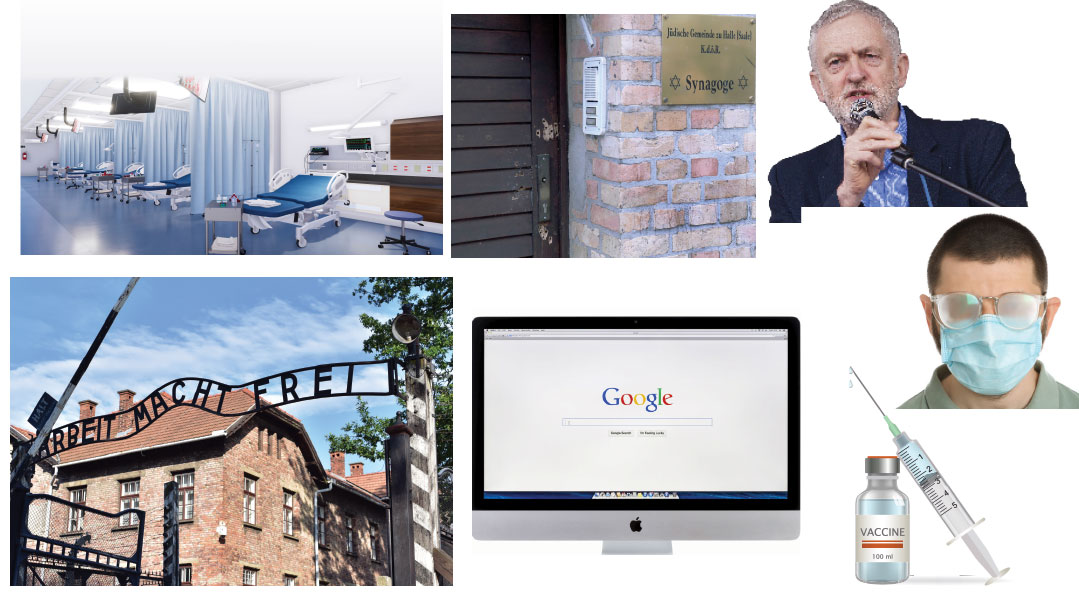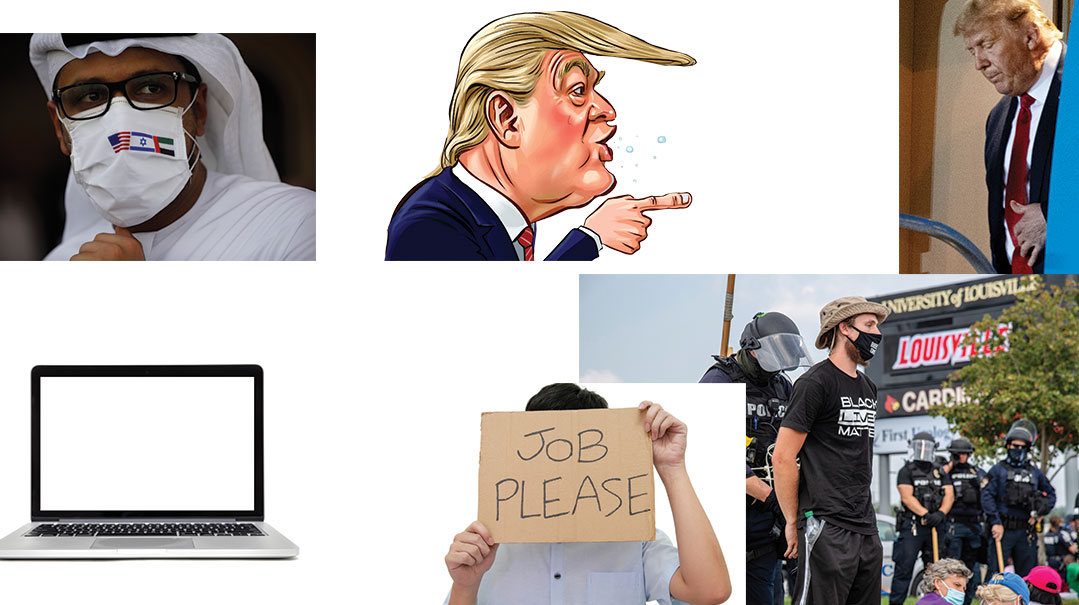Year in Review: Eye on Europe

The pandemic hasn’t so much marked the dawning of a new age as accelerated pre-existing trends

One Year, Two Eras
How do you tell the story of a year that spans two different epochs, starting in BC, “Before Corona,” and ending in CE, the “COVID Era”?
The answer is: with difficulty — but the tale begins in the run-up to the secular new year, when two political breakthroughs decided the fate of Britain and of the country’s worried Jewish community. First was the Brexit deal in October, coming after three years in which the country’s elite did everything possible to reverse the results of the 2016 referendum on European Union membership. Finally, Boris Johnson’s caretaker government used the very real threat of crashing out of the European Union without a deal (“No Deal Brexit” for history buffs) to hammer out an agreement.
Then in December, Johnson inflicted a crushing election defeat on Jeremy Corbyn’s Labour Party — putting Downing Street out of the reach of a man who called Hamas and Hezbollah his “friends,” and on whose watch blatant anti-Semitism had flourished in the party.
The rest, as they say, would have been history had coronavirus not transplanted itself with lethal effect to northern Italy. Pictures of overwhelmed hospitals shocked Europe, and in short order France, Germany, Denmark, and other countries locked their borders and then their streets. Belatedly, Britain did too, but the delay contributed to the country’s staggering 42,000 death toll — the highest in Europe.
One year, two eras.
But look deeper at these two halves of the year, and there are underlying links; the pandemic hasn’t so much marked the dawning of a new age as accelerated pre-existing trends.
Before coronavirus struck, the EU was at a crossroads. Brexit threatened to pull the project apart, and the Franco-German core was faced by a choice: unravel, or integrate further. Thrifty Teutonic taxpayers balked at supporting poorer European states — until COVID. In June, German Chancellor Angela Merkel agreed to a massive €500 billion recovery package for the economic bloc, financed by mutualized debt. The money was historic, but even more so the signal it sent of European integration.
And then there’s China. The relationship between the EU and the Asian giant was cooling anyway as the Europeans realized the scale of China’s industrial threat. But Chinese attempts to score a propaganda victory at the height of the pandemic’s first wave by airlifting in supplies further soured the relationship, and now European leaders are finally talking tough.
Chinese Communist leader Zhou Enlai’s quip about assessing the effects of the French Revolution — “It’s too early to say” — is certainly true of this plague. But this year in Europe, there’s more continuity than meets the eye.
Trend of the Year
Last Yom Kippur, a far-right extremist tried shooting his way into a shul in Halle, Germany. What could have been a massacre was foiled by the shul’s security door, but February saw a successful attack on migrants at a bar in Hanau, near Frankfurt. Both attacks set off alarm bells about the far-right threat in Germany — exacerbated by reports of a special forces unit that had to be dissolved due to rampant neo-Nazism among its membership.
Quote of the Year
“Damages should be paid by the one that started the war.”
Prior to his re-election bid, Polish President Andrzej Duda, a staunch nationalist, insisted that his government would never approve Jewish compensation claims for property seized in the Holocaust and retained by the postwar Communist government.
Poland is the only European country not to have enacted such a restitution law, despite (or perhaps because of) claims estimated at anywhere between $30 and $300 billion.
Bright Spot
Elevated emunah
A University of Copenhagen study called “In Crisis, We Pray” found that Google searches for “prayer,” “G-d,” and, “Allah” skyrocketed from mid-March, when coronavirus hit Western countries. Using data from 75 countries, Dr Jeanet Bentzen found that “search intensity for prayer doubles for every 80,000 new registered cases of COVID-19, occurring on all continents and for Christians and Muslims.” Even Denmark, one of the least religious countries in the world, saw systematic increases in Internet searches on prayer.
Who would have believed it?
Game Changer
The race to develop a COVID-19 vaccine is on, and European pharmaceutical heavyweights from Sanofi to GSK to AstraZeneca are all hustling to be the first past the post. Russia’s proud trumpeting of its (so-far unproven) vaccine is a sign that the precious vials are more than mere medicine, but a geopolitical shot in the arm for whichever country masters the science first.
Stat of the Year
Statistically speaking
The position of former Labour leader Jeremy Corbyn on a Times Radio poll of “Best Prime Minister Britain Never Had.” It’s hard to argue with success.
Object of the Year
While the obvious candidate is the humble coronavirus mask, our vote goes to foggy glasses. This is a bane of mask-wearers everywhere, but especially of Jewish people, whose glasses-wearing is truly a spectacle.
And while glasses are universal, not many people know that they are uniquely European in origin. A Milan-based company, Luxottica, dominates the market, offering everything from Oakley to Ray-Bans.
So far, despite the plague of befogged lenses, the company doesn’t see a way forward.
(Originally featured in Mishpacha, Issue 828)
Oops! We could not locate your form.













